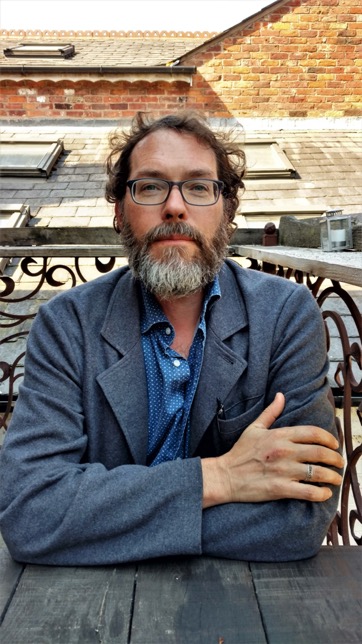Takeaway
To give excellent patient care, healthcare professionals must prioritize their own mental health and that of their trainees. This could include self-help strategies, like writing, along with professional support.

Creative arts in medicine | August 24, 2023 | 2 min read
By David Kopacz, MD, University of Washington
it is internship year
I can’t write any poetry
I had a dream,
that I wrote some poetry
at the bottom
of a progress note
and painted a light grey border around it–
I had to tear it off
you can’t write poetry
in a patient’s chart
I had a dream,
a patient
was trying to kill me–
I beat his head against the ground
I ran away
I woke up
I had a nervous tic
in my left eye
for one week
even when I didn’t drink too much coffee
I can’t write poetry this year–
maybe if I could write,
I wouldn’t have gotten that tic
I wouldn’t have had those dreams
This poem that came out of the paradox of not being able to write poetry is a transcription of a dream I had. Freud spoke of the “return of the repressed” and this is a good example of that. I had to suppress my creative, artistic, and poetic side―I had no time and there was no space for it in the medical curriculum, as “you can’t write poetry/in a patient’s chart.”
Similarly, there was no space or support to process fear and anger after dealing with a patient’s aggression. This dream/poem was after an incident in which I was a new psychiatric intern and was called up to the ward at the West Side Veterans Administration hospital on Damen Avenue in Chicago. A patient was hostile, threatening, demanding benzodiazepines and he and I had a showdown in the hallway, each standing our ground. I remember thinking, “I don’t know what to do, but I’m the doctor, I guess I have to just stand here and confront this veteran until he hits me.” He didn’t hit me, yet the aggression and my response appeared in the same dream, again, “the return of the repressed.”
My brief interpretation of the dream is quite obvious―if I had the time, space, and support to process my emotions, to write, to paint, to feel, I wouldn’t have had nightmares and stress muscle twitches. Even though I knew to value writing and painting, it just didn’t fit in busy intern year. Even going to psychotherapy for a time during internship year (it was tough to fit into the busy schedule) didn’t help me work through the stresses of medical education. I would encourage trainees to attend to their emotions, to process stressful situations, to use whatever creative methods that appeal to you, to get personal therapy―but I think the system really needs to value and acknowledge the human experience of exposure to death, illness, and madness. In your process of education to become an attending, attend to your dreams, let them guide you, even in the absence of a flesh and blood mentor.
This piece expresses the views solely of the author. It does not necessarily represent the views of any organization, including Johns Hopkins Medicine.

